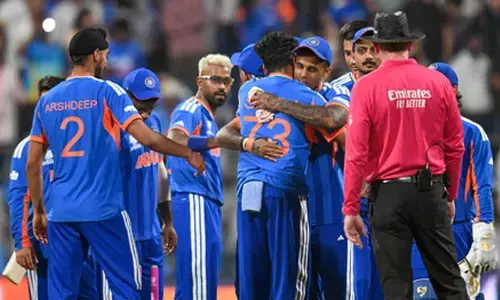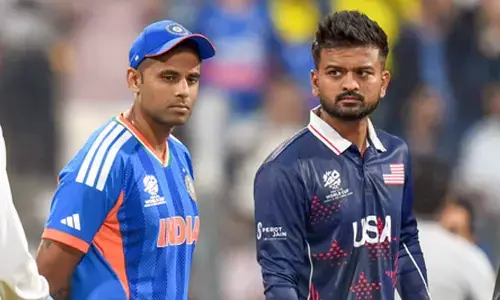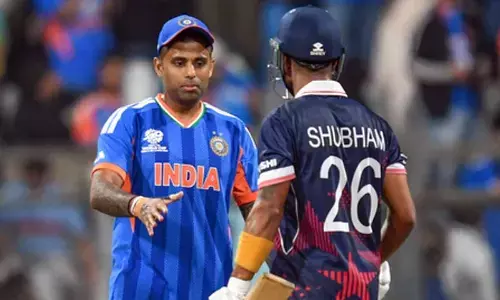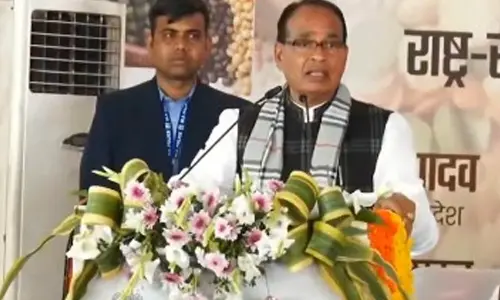Panel discussion on Union Budget
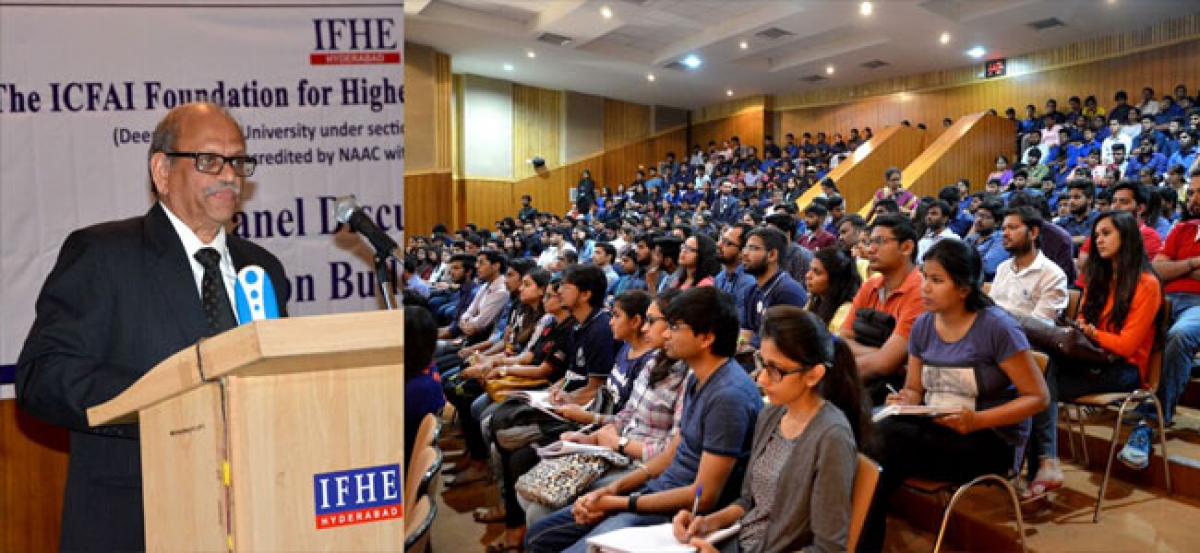
The ICFAI Foundation for Higher Education (IFHE) Deemed University, Hyderabad conducted a discussion on the Union budget 2018-19, at its campus Hyderabad on Monday. The members in the panel were Dr. M Govinda Rao, Emeritus Professor, National Institute of Public Finance and Policy, New Delhi; Murali Krishna Reddy, Chairman, MAK Group; and Prof.
Hyderabad: The ICFAI Foundation for Higher Education (IFHE) Deemed University, Hyderabad conducted a discussion on the Union budget 2018-19, at its campus Hyderabad on Monday. The members in the panel were Dr. M Govinda Rao, Emeritus Professor, National Institute of Public Finance and Policy, New Delhi; Murali Krishna Reddy, Chairman, MAK Group; and Prof.
Tarun Jain, Professor of Economics and Public Policy, Indian School of Business. Dr. Govinda Rao started off by saying that there was a disconnect between the economic survey and the budget.
He highlighted the fluctuation in prices of food as the main cause of farmers’ distress and the urgent need for carrying out reforms in implementation mechanism for effective delivery of outcomes benefiting the rural poor. He raised his skepticism over the implementation of the promises made by the government in this budget.
He questioned the feasibility of insuring 500 million under-privileged individuals with a cover of Rs 5 lakh each, under government’s Ayushman Bharat Programme. Identifying the beneficiaries, disbursement of the funds were a few challenges that he highlighted. Dr. Rao also questioned the feasibility of doubling the farm-income.
He asserted that doubling the farm income with the present levels of yield, the prevailing Minimum Support Prices, the technology and the farmers’ know-how, was far from a reality.
Dr. Rao also commented on the tax policies and inferred that the Indian taxing system is often seen chasing too many objectives than it should, and hence misses the main objective of generating revenues for public good. Dr. Rao also raised concerns over the government’s lack of accountability towards several initiatives like Namami Gange, Smart City project, Educational Cess, etc.
Speaking on the occasion, Murali Krishna Reddy shared a businessman’s perspective on this year’s budget. He highlighted the lapses in the initiatives like MNREGA, loopholes in tax policies and government’s failure in casting a wide net of tax that could include more number of tax payers.
Mr. Reddy emphasized the need for paying special attention to the Micro-Small and Medium Enterprises, which promise significant employment opportunities across sectors. Mr. Reddy also spoke about the need for introducing more effective mechanisms to measure and evaluate the outcomes of the policies and projects implemented by the government.
Prof. Tarun Jain shared his views on the importance of youth in building the economy. He said that policies should focus less on handouts and more on developing capabilities.
Presiding over the event, in his address, Dr. J. Mahender Reddy, Vice Chancellor, IFHE, raised a few crucial issues around the aspects of fiscal consolidation, oil prices, private investments, the health of public sector banks, and agro-economic performance.









